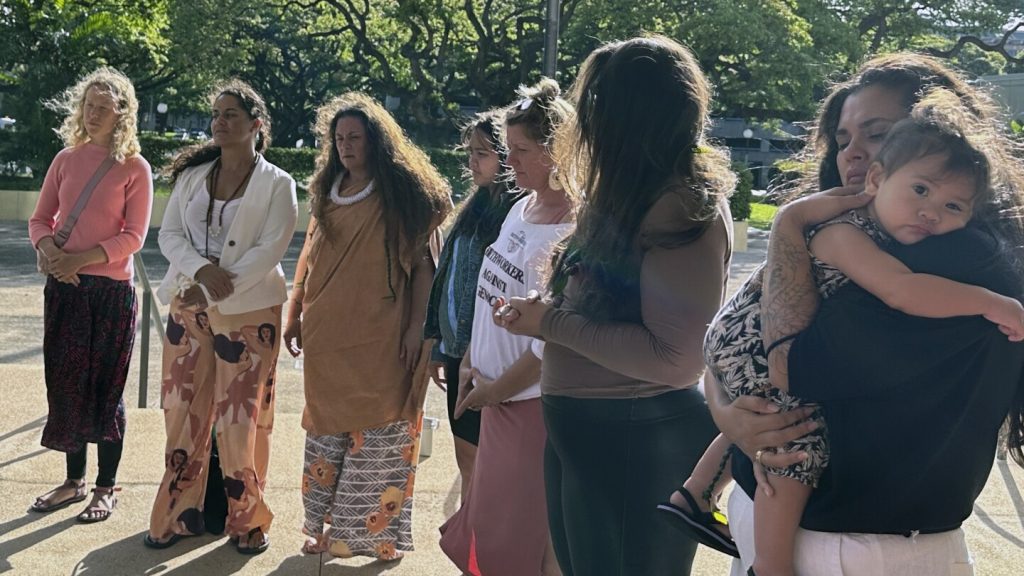Ki‘inaniokalani Kahoʻohanohano’s desire for a deeper connection to her Native Hawaiian ancestors and culture during her first childbirth at home in 2003 led her to become a Native Hawaiian midwife. As a midwife, she practiced traditional birth customs, welcoming babies into the world with sacred chants and traditional cloth. Now, she and others are in a legal battle to block a state law that they believe endangers their ability to continue serving pregnant women seeking traditional Native Hawaiian births. The law, enacted in 2019, requires anyone providing care during pregnancy, labor, childbirth, and postpartum to be licensed, potentially affecting midwives, doulas, lactation consultants, and even family members of the new mother.
Previously, there was an exception in the law for “birth attendants,” which allowed Kahoʻohanohano to continue her practice. However, with that exception now expired, she and others face the licensing requirements, including costly programs that do not align with Hawaiian culture and beliefs. The state argues that licensing reduces the risk of harm to pregnant individuals, but those challenging the law believe it infringes on their right to provide traditional Native Hawaiian birth practices. The dispute highlights the ongoing debate in Hawaii about regulating traditional healing practices and the recognition of Native Hawaiian customs.
The lawsuit against the licensing law includes plaintiffs who argue that the new requirements violate their privacy and reproductive autonomy under Hawaii’s Constitution. The plaintiffs, represented by the Center for Reproductive Rights and Native Hawaiian Legal Corporation, seek to protect the practice of traditional birthing methods and preserve cultural traditions. Kahoʻohanohano’s journey to becoming a midwife involved learning from a Native American midwife and incorporating traditional Hawaiian practices into her own birthing experiences, which she views as her greatest teachers. Her work has focused on helping low-risk pregnant women and preserving cultural practices such as using traditional cloth and observing cultural protocols for newborn care.
The impact of the licensing requirements has halted the education of midwives like Makalani Franco-Francis, who learned about customary birth practices from Kahoʻohanohano. Franco-Francis testified that the out-of-state or online programs required for licensure are not in alignment with cultural practices and are financially burdensome. The case raises questions about the balance between regulation for maternal and newborn safety and the preservation of cultural traditions in childbirth. The judge is currently hearing testimonies from the plaintiffs, and the outcome of the case remains uncertain. The dispute reflects a broader conversation about the recognition and protection of traditional healing arts and Native Hawaiian practices in Hawaii’s modern healthcare system.


